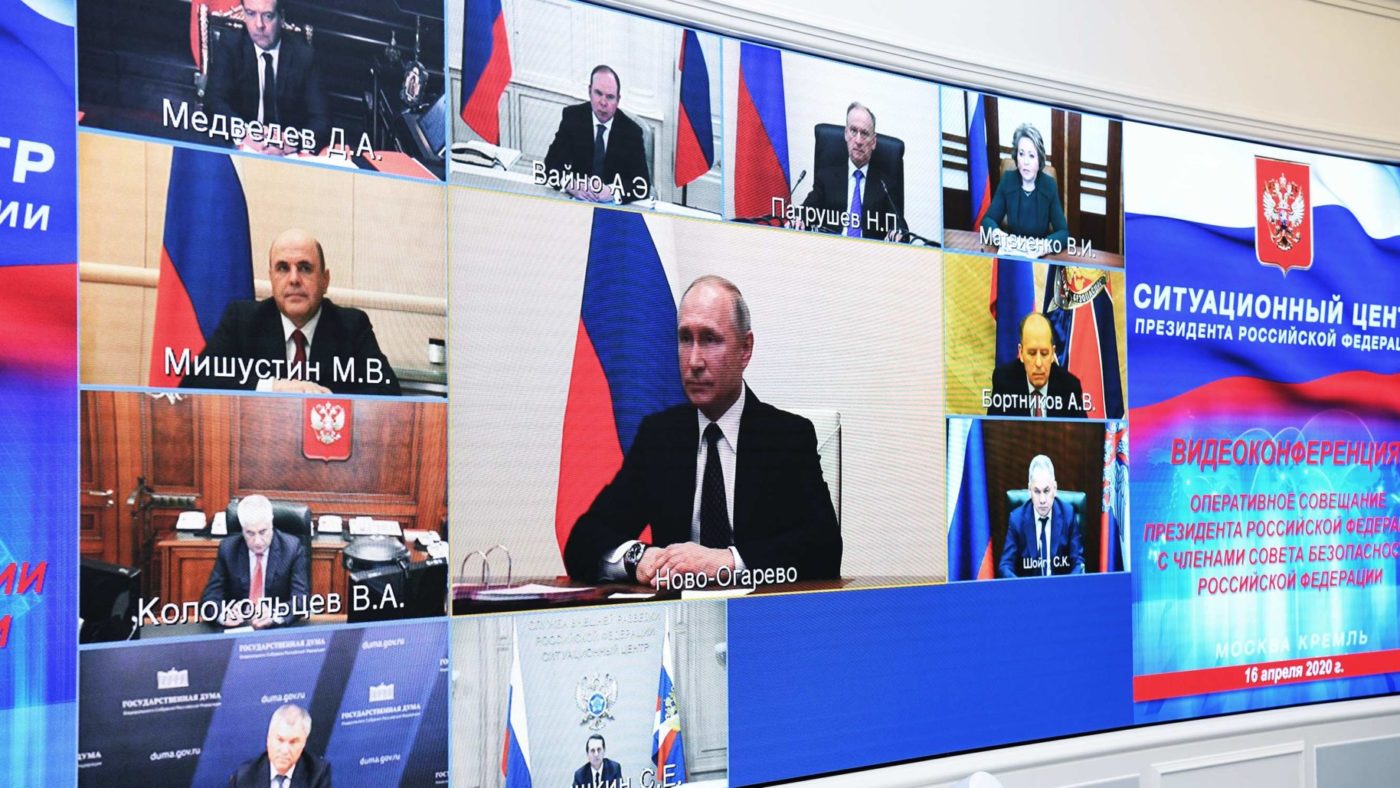Bill Dod, an anchor for the RT UK News channel, recently posted on Twitter a clip of himself and his colleagues clapping for carers. Dod’s career experience includes stints as a quiz show host on the Carlton Food Network and a location reporter on the Travel Channel, and he may not have quite grasped the squalid irony of this gesture. RT is of course the euphemistic rebrand of Russia Today, the state propaganda organ of a regime whose attempted murder of Sergei and Yulia Skripal in 2018 by use of a nerve agent in Salisbury was foiled only because their lives were saved by the skills of NHS workers.
An organisation that apes the trappings of a normal news outlet while serving the interests of a foreign autocracy is emblematic of an underreported feature of the coronavirus crisis. While imposing restrictions unprecedented in modern peacetime history in order to stop infection, the Western democracies are contending with a propaganda war waged by three states in particular: Russia, China and Iran.
The swamp of disinformation is very murky indeed, and the accusations levelled by the propaganda outlets of these regimes are inherently ludicrous and wildly inconsistent. Yet in the digital age it is quite easy to insinuate conspiracy theories into public debate and thereby make calumnious allegations stick. Democratic governments need to be aware that, even amid a global pandemic, this hostile activity doesn’t cease and is indeed stepped up.
This week Ofcom, the broadcasting regulator, found a local television channel, London Live, to be in breach of broadcasting standards for an interview it aired with David Icke. It also “issued guidance” to ITV for comments made by the presenter Eamonn Holmes that appeared to give sustenance to conspiracy theories that 5G causes the coronavirus.
Ofcom was right to take swift action in these cases, which it said “risked undermining viewers’ trust in advice from public authorities and scientific evidence”. The claims about 5G are utterly baseless and a textbook case of pseudoscience. They have reportedly prompted attacks on around 20 mobile phone masts. They are derivative of the dangerous nonsense spread by anti-vaccine campaigners, and before them of anti-fluoridation campaigners, that democratic governments are attempting to poison and render docile their citizens. And who do you think has been pushing them since long before the coronavirus crisis emerged? As the New York Times reported last May: “RT’s assaults on 5G technology are rising in number and stridency as the American wireless industry begins to erect 5G systems.”
Again and again, RT has spread alarmist nonsense about the supposed health risks of 5G, including claiming that children exposed to it are susceptible to cancer and learning difficulties. The cynicism is beyond even these charlatans’ normal standards. The claims may be rubbish but the chance to gain a technological and industrial advantage through lies and fakery is not one that Vladimir Putin’s regime will lightly pass up.
The plight of Iranians in the coronavirus crisis is severe and harrowing, with reports of workers preparing mass graves for the victims. The regime’s official numbers are bogus but we know that the suffering is so immense that hundreds of people have died after drinking methanol in desperation amid false rumours that it is a curative for Covid-19. A paranoid regime that presides over a public health crisis of these proportions will revert to type, by blaming conspirators – and, especially, the Jews. In an article for Foreign Policy last month, Kasra Aarabi noted that propaganda organs of the Islamic Revolutionary Guards attribute the coronavirus simultaneously to an “American biological invasion” and to a “Zionist biological terror attack”.
China is where the coronavirus began and the regime’s propaganda efforts alternate between the brazen and the subtle. The first type is evident in official hints that the coronavirus is an American bioweapon. The regime has absolutely no evidence to this effect but is merely repeating or plagiarising online conspiracy memes. A senior official in China’s foreign ministry has posted on social media an article titled “COVID-19: Further Evidence that the Virus Originated in the US”, from a notorious conspiracist site called Global Research. This innocuous-sounding name is a haven for cranks of far right and of far left, having been set up by a Canadian academic and 9/11 Truther called Michel Chossudovsky.
The more subtle Chinese approach lies in propaganda depicting the supposed success of the regime in quelling the coronavirus compared with flailing Western efforts. It’s a campaign that democracies have an inherent disadvantage in rebutting because, by definition, they are open societies where their failings are open to public view. And China has raised the stakes by exporting what appears to be medical aid to other countries. The transactions (because that’s what they are) are obscure and many of the medical materials unusable, but the propaganda matters. The operation fits with a longstanding aspect of Chinese economic diplomacy, which is to tie in the recipients while ostensibly helping them. China is particularly notorious for operating a “debt diplomacy” with poorer nations, giving them loans while seeking to exploit them for strategic advantage (Sri Lanka gave China a 99-year lease on a port in 2017, in return for a cash injection).
The Western approach to the coronavirus crisis is first about protecting lives and livelihoods. There is a longer-term strategic issue too. In his seminal essay “The Paranoid Style in American Politics” (1964), Richard Hofstadter referred to a type of politics, of which McCarthyism was then a recent instance, that has “the qualities of heated exaggeration, suspiciousness and conspiratorial fantasy”. We are now seeing the deliberate joining of malevolent conspiratorial fantasies to the state interests of hostile foreign powers, and the coronavirus crisis is giving it wings.
Click here to subscribe to our daily briefing – the best pieces from CapX and across the web.
CapX depends on the generosity of its readers. If you value what we do, please consider making a donation.


